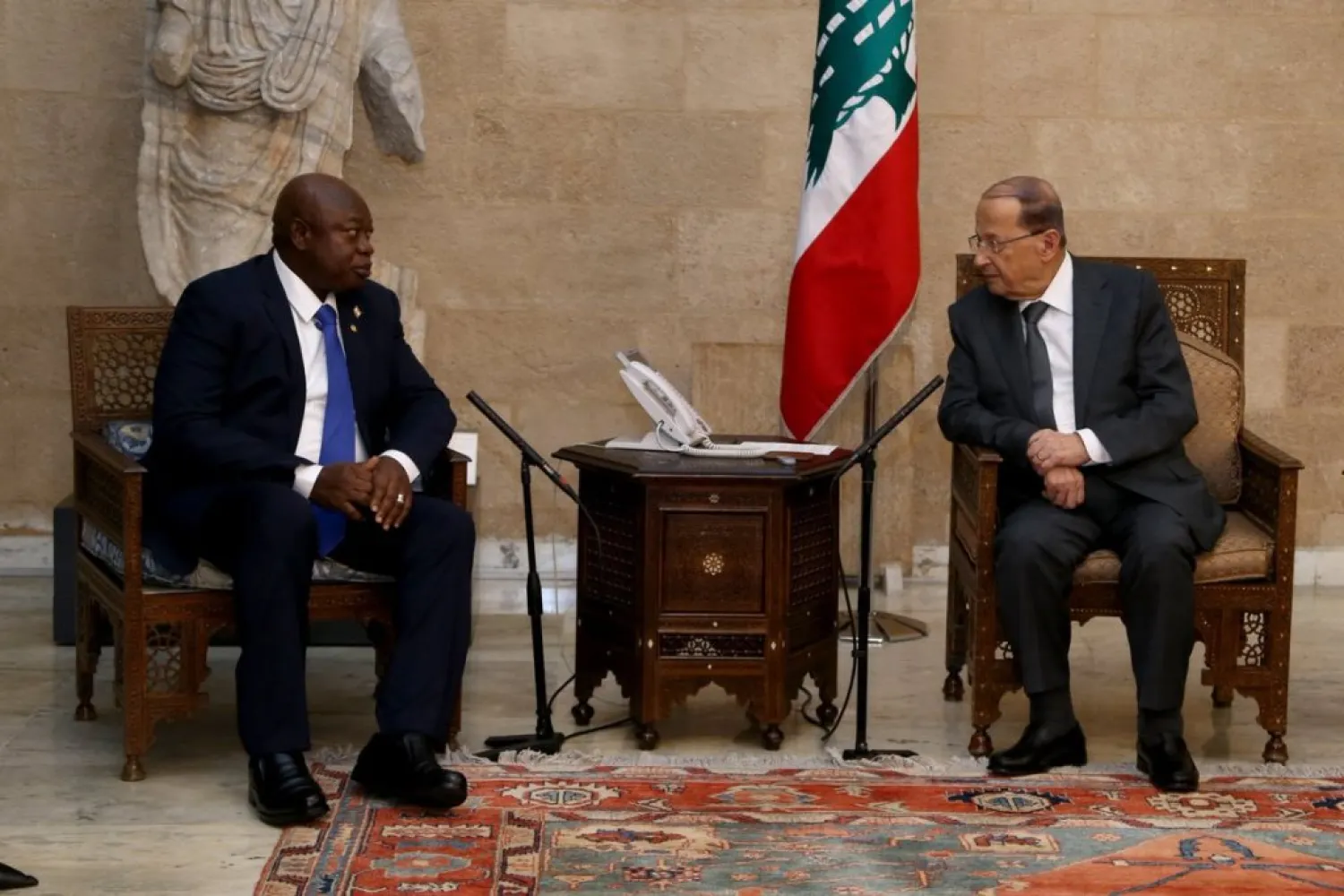President Michel Aoun Tuesday lauded the contributions of Lebanese expatriates to Guinea-Bissau's economy, during a meeting at Baabda Palace with the West African nation's speaker of parliament, a statement from the presidency reported.
"The Lebanese expatriates around the world and in African countries, in particular, are playing a leading role in promoting Lebanese-African relations, and reaffirming the distinguished Lebanese presence abroad; a presence that has become a role model," Aoun said during his meeting this Tuesday with Guinea-Bissau's Speaker.
Aoun noted that many members of the Lebanese community in Guinea-Bissau hold high-level positions in local business and politics.
He underlined "the excellent relations between Lebanese expats and the Guinea-Bissau authorities and citizens, especially owing to their contribution to economic life and investment projects," lauding the support of the Republic of Guinea-Bissau in international forums.
The president thanked Speaker Cipriano Cassama for his country's ongoing support for Lebanon and expressed hope for further cooperation between the two nations in the future, particularly through the International Organization of the Francophonie.
For his part, Cassama conveyed to Aoun the greetings of the President of Guinea-Bissau, praising the importance of cooperation between the two countries, and shedding light on the role played by the Lebanese businessmen in Guinea-Bissau.
He told reporters after the meeting: "I have had the opportunity to share with the President some of the concerns of the House of Representatives and the political situation in Guinea-Bissau," adding that his country is deemed friendly to Lebanon and the Lebanese" in all international fields, and the various authorities in our country have stood by Lebanon's side at the United Nations."
Later that day, Cassama was welcomed by Prime Minister-designate Saad Hariri at the Center House in the presence of Minister Jamal Jarrah and MPs Bahia Hariri, Michel Moussa, Dima Jamali and Nazih Najem.
The meeting focused on the good relations between the two countries, the positive and constructive role played by the Lebanese community in Guinea-Bissau and its effective contribution to the country's development.
At the end of the meeting, Hariri and his guest exchanged souvenir gifts.









